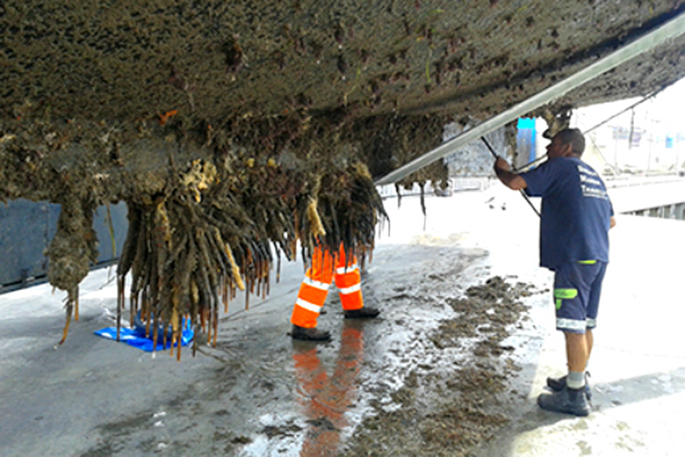A harbour surveillance programme on the Coromandel Peninsula has led to the quick identification of the marine pest fanworm, preventing its spread to other vessels.
It's the second year Waikato Regional Council has used the Bay of Plenty Regional Council dive team for the month-long surveillance programme targeting popular boating havens.
"Marine pests can move around on dirty bottom hulls and have a big impact on our native marine life, aquaculture industry and on the coastlines we all love," said Waikato's biosecurity pest animals team leader Brett Bailey.
"Early detection is essential if we're going to stop their spread, and that's why we've teamed up with Bay of Plenty Regional Council to check high risk and high value areas on our region's east coast for signs of Mediterranean fanworm."
Fanworm, also known as sabella, can establish in large colonies and will outcompete natives, such as oysters, scallops and mussels, for food and space.
So far it is only in a few New Zealand harbours and in the Waikato region it's limited to Coromandel Harbour.
"Of course, we want it to stay that way because of the massive impact it can have on our marine ecosystems, but the movement of infested vessels is the biggest risk to our waters.
"As part of our surveillance programme we found a small infestation of fanworm on the hull of a boat moored in Whitianga harbour earlier this month. We alerted the owner, who immediately returned from overseas to get the infestation removed and the hull cleaned.
"Divers had a good look at neighbouring vessels and the surrounding marine environment, and the good news is that we haven't seen any signs that it has spread," says Brett.
Fanworm doesn't discriminate between a clean vessel and a dirty one. But the cleaner the boat and the more up to date vessel owners are with applying anti-fouling, the less likely they are to attract fanworm.
"Boaties need to be diligent to minimise the risk of it spreading, and let us know if they find it by calling our biosecurity team on 0800 800 401," says Brett.



0 comments
Leave a Comment
You must be logged in to make a comment.